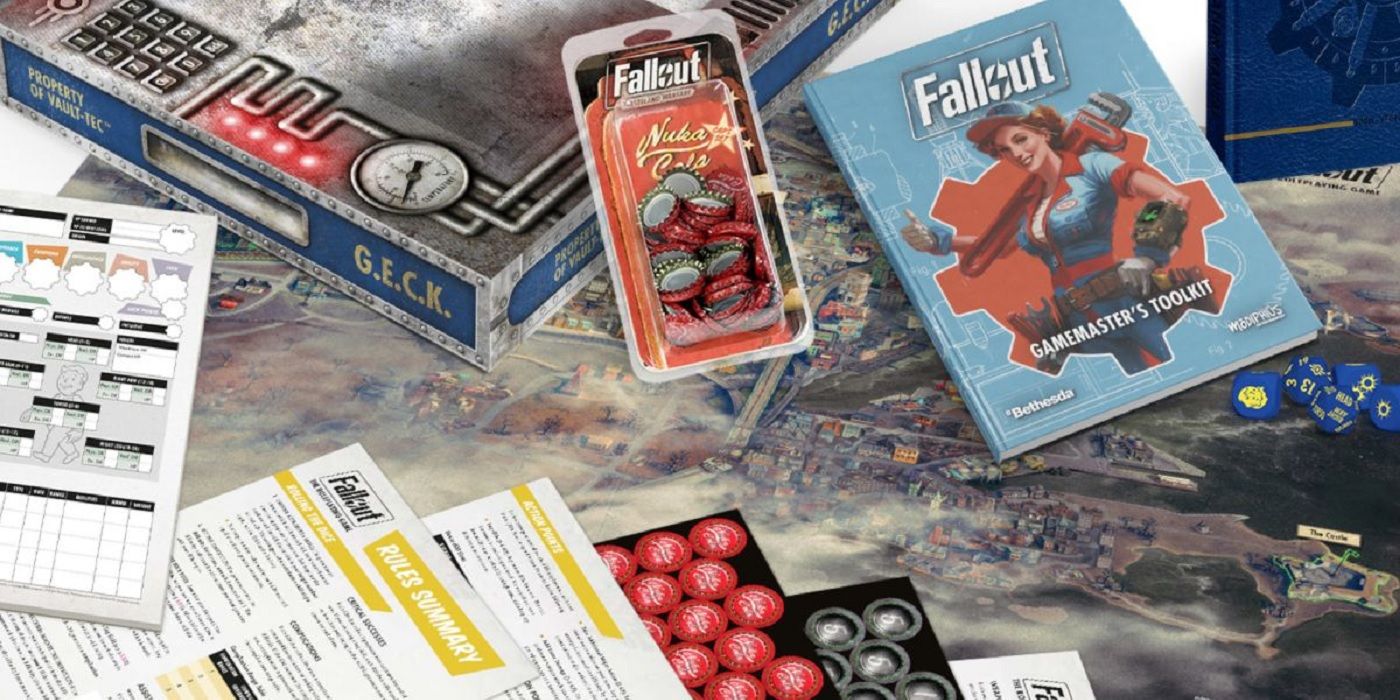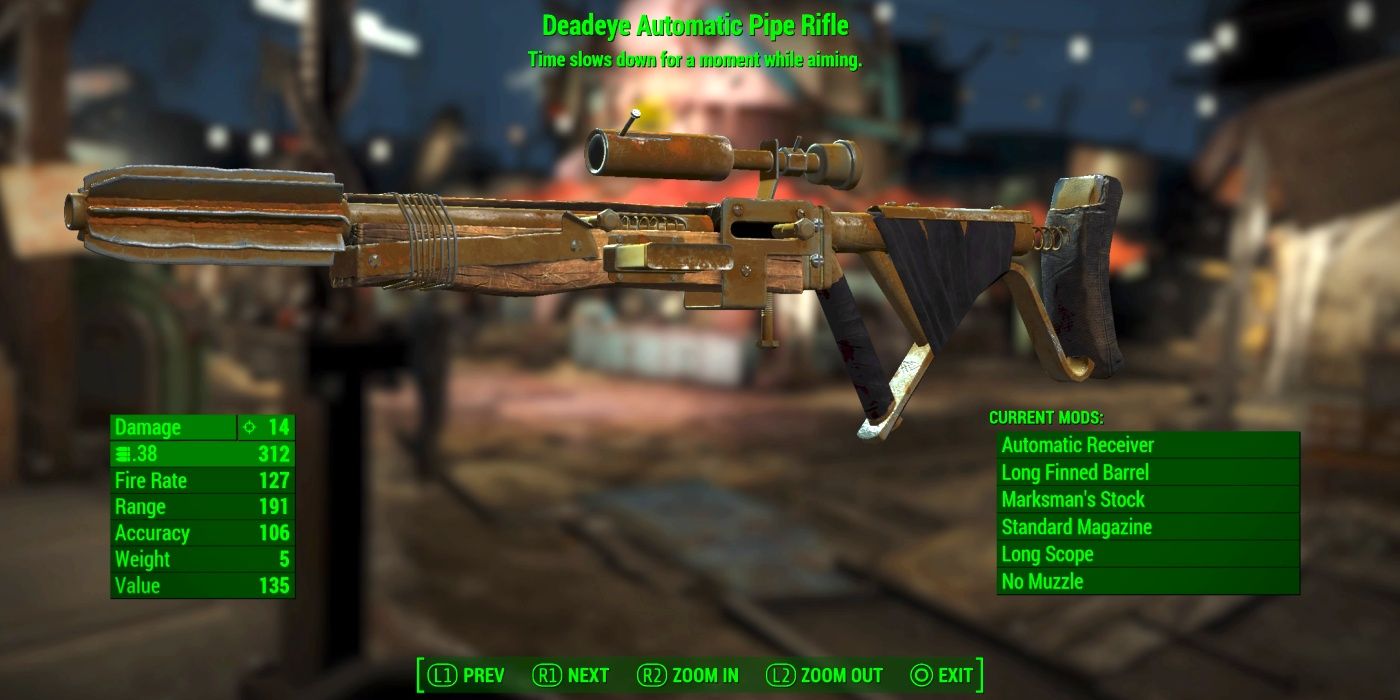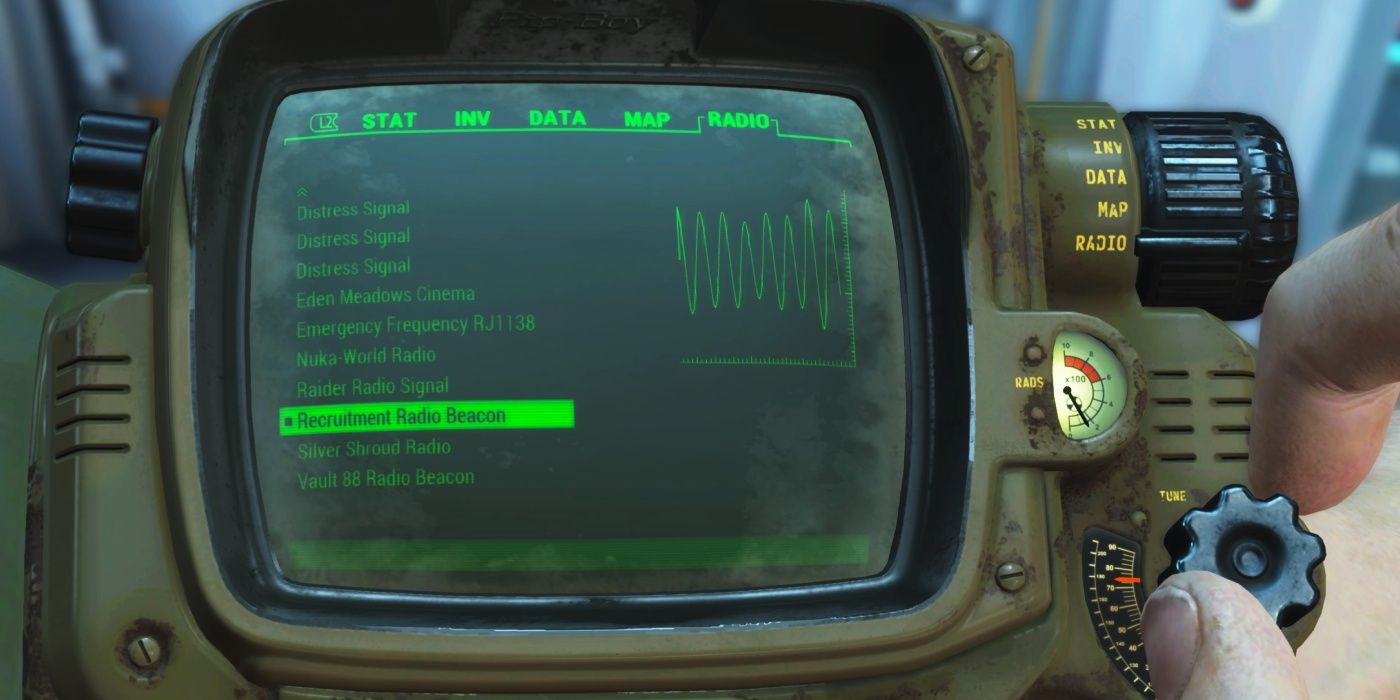The Fallout video game franchise is well known for a few distinct features and specific mechanics. The S.P.E.C.I.A.L. stats, Pip-Boy, and a nuclear wasteland all being part of a familiar formula. With the upcoming release of the Fallout Tabletop RPG, players may wonder what will stay the same and what will be different in this iteration.
The Fallout Tabletop RPG takes place in the same area as Fallout 4, the Commonwealth, occurring just before the events of the game. The Commonwealth is based on a post-war Boston, Massachusetts suffering the effects of nuclear fallout. All notable locations from the Commonwealth found in Fallout 4 can be found detailed in the rulebook, like Diamond City and the Corvega Assembly Plant.
Previous Fallout titles have featured character creation, though nothing similar to a TTRPG. Players will first choose to be a super mutant, vault dweller, survivor, ghoul, Mr. Handy, or a Brotherhood of Steel initiate. While none of these characters are new to the Fallout series, some have never before been playable. Players will next choose their background, starting equipment, and other details familiar in TTRPGs.
The New Fallout Tabletop RPG Has A Number Of Series Differences
Robotic characters will be a new option for players to roleplay, that won't have access to many of the typical methods of protection. These characters will utilize robot armor instead and can have up to three helpful modules installed on their frame. Most of these armor pieces and mods appear in Fallout 4's DLC Automatron as options for the robot companions, but new ones like a Behavioral Analysis Mod and a Hazard Detection Mod are also included.
Luck Points are a mechanic unique to the tabletop game. Players will start a quest with luck points equivalent to their luck attribute that offer a wide variety of benefits. They can be spent to introduce a helpful fact or detail about a situation that the character would have needed to be lucky to encounter. One Luck Point can be used before a skill test to replace the default attribute of an encounter with the luck attribute. These points can also interrupt rounds of combat to let a player take their turn ahead of time, or reroll a d20 or up to three combat dice.
Weapons will have damage effects that seem similar to the best weapons seen in Fallout titles, though they are more geared towards the effects of the method the weapon used to inflict damage in this iteration. Legendary weapon effects often increased damage done to specific enemies, could slow down time while aiming, or applied additional damage types. Damage effects however provide benefits like blocking targets from taking their next turn with stun, reducing available enemy cover with breaking, or hitting an additional target with burst.
In Fallout, critical hits will deal a damage multiplier and can possibly cripple an enemy. In the Fallout TTRPG, critical hits will always apply an injury to the target based on the body part that took damage. While similar to crippling, these injuries are often more dramatic, imposing negative effects such as a loss of all damage resistances and the complete inability to use a limb rather than just a decrease in its effectiveness.
Magazines can still be found across the wasteland, though the perks they offer are only temporary, making them similar to fan-favorite Fallout: New Vegas. The perks these magazines provide will be useful in certain single situations and may only be used once under normal circumstances. After a player has used a perk from a magazine they can choose to permanently learn it on their next level up, otherwise the perk will be forgotten. All magazine publications that can be found in the tabletop game will be familiar to Fallout veterans.
Similarities To Classic Games In The New Fallout Tabletop RPG
All familiar factions populate the Commonwealth. Players can encounter members of the Railroad, Minute Men, Institute, or Fallout's iconic Brotherhood of Steel, as well as notable enemies like Gunners and feral ghouls. Enemies players come across will also have familiar damage resistances, with all having varying resistance to physical damage, energy damage, radiation damage, and poison damage.
All the S.P.E.C.I.A.L. statistics are still included and serve the same purpose, with a few functional tweaks. For example, Perception won't relate to V.A.T.S. accuracy or being observant, but instead focuses on a player's survivalist abilities. Agility will not directly affect available Action Points but still determines a player's overall bodily control and their ability to sneak.
Perks will also be included and function almost identically in this TTRPG as they have previously. Requirements to unlock a perk will still be tied to a minimum rank in its related attribute, with many perks having multiple ranks that each count as a separate perk. Perks can be used as cornerstones to specific Fallout character builds that can dominate the wastelands. Many of the perks detailed in the rulebook will be instantly recognizable to series veterans, offering the same benefits as before, including Black Widow/Lady Killer, Grim Reaper's Sprint, and Nerd Rage!
Players will still need to monitor the rads they soak up, as radiation damage reduces players' maximum health points just as it does in Fallout 4. Using RadAway or other chems or food that reduce accumulated radiation before healing lost health points will be best practices. Radstorms are a related inconvenience players may face in both the TTRPG and some of the Fallout video games, applying radiation damage to any creature not covered by shelter.
Crafting still occurs much the same way, with players collecting generic junk through their journeys and salvaging useful materials from them at a workbench. The materials players can collect vary in rarity and are useful in a wide variety of recipes; including weapon mods, armor mods, and power armor mods. Cooking stations are the exception and function slightly differently, with players able to set up their own anywhere using two common rarity materials.
Snacks, meals, and beverages are also still included in much the same way, with most foods even giving a small dose of radiation if eaten raw. Players may find Blamco Mac & Cheese and Canned Dog Food while scavenging, or a refreshing Nuka-Cola. Cooking is also still possible and offers many of the same advantages. Mirelurk Egg Omelettes can still be cooked to provide an immediate boost to AP, Yao Guai Ribs will increase player's physical damage resistance, and Mutant Hound Chops will heal a bit of radiation damage. Alcohol like whiskey works similarly in both Fallouts whether tabletop or not, often reducing Intelligence in exchange for an increase in another attribute.
Chems are another returning craftable that will function similarly, though players in the Fallout Tabletop will need the science skill to craft any chems. Chems each have their own recipe and can only be crafted at a chemistry station. All the chems players may have relied on in Fallout are available in the tabletop version and function almost identically. Jet chems will slow down time for the player by offering a temporary AP boost. Overdrive still buffs attack damage and increases the chance for critical hits by allowing players to reroll up to three combat dice.
Players have the option to select the specific body part they are targeting while in combat with the six standard choices being: head, torso, left arm, right arm, left leg, and right leg. Some creatures will have more locations that can be targeted, like wings or tails. Pip-Boys are a useful tool in Fallout that can assist in targeting specific body parts. It lets players use the Vault-Tec Assisted Targeting System, or V.A.T.S., allowing its user to ignore the difficulty increase from targeting a specific location on an enemy in the tabletop version. Pip-Boys are also described in the rulebook as having many familiar functions like a Geiger counter and a holotape player.
Overall, while mainline Fallout games and the tabletop version have a considerable number of differences, there are also a lot of familiar crossover features that will make it familiar territory to series fans. Anyone looking to spend some time in the Fallout world outside of a digital context should find plenty of touchstones to make the tabletop RPG instantly familiar, despite some of the gameplay changes.



